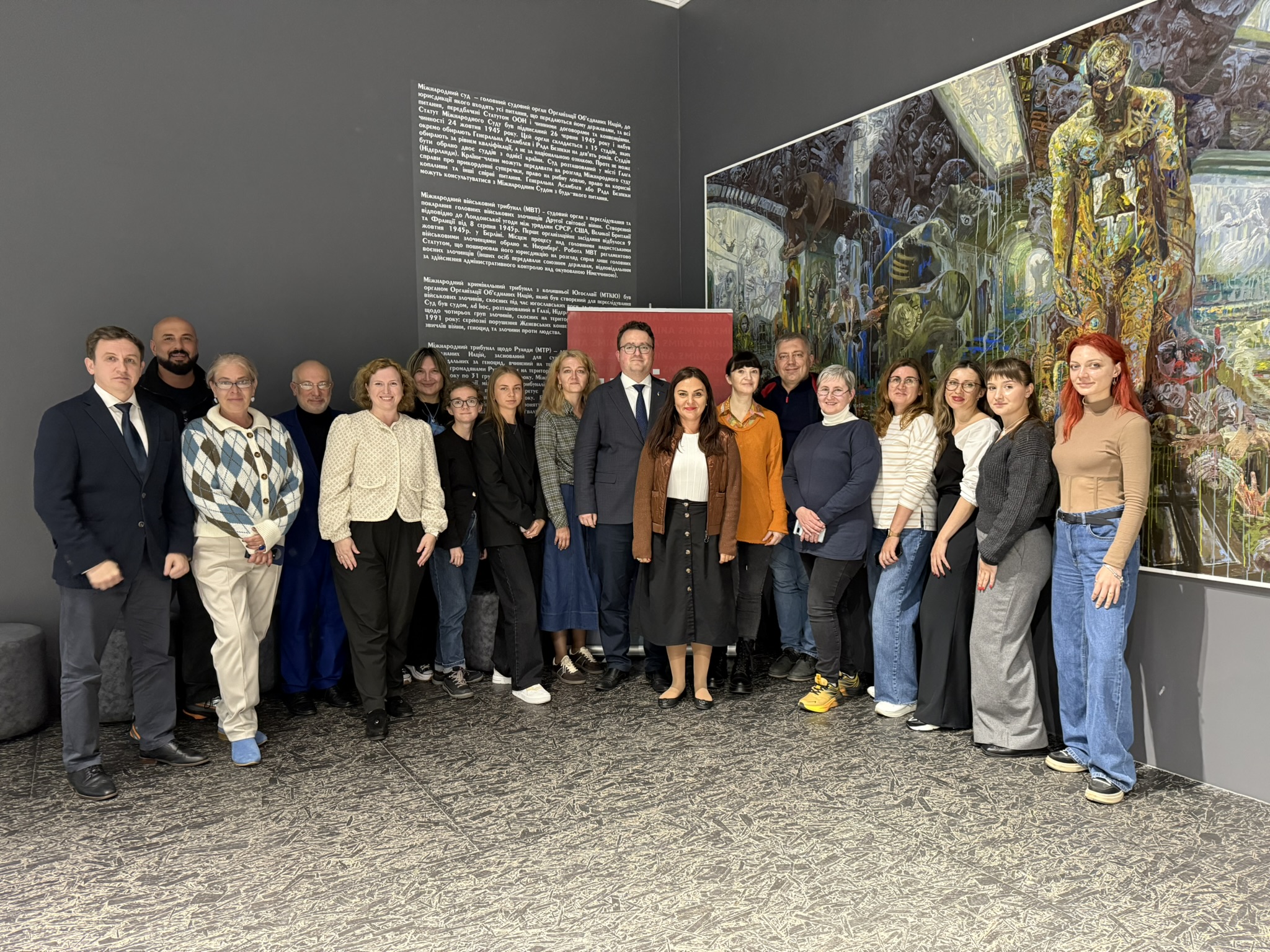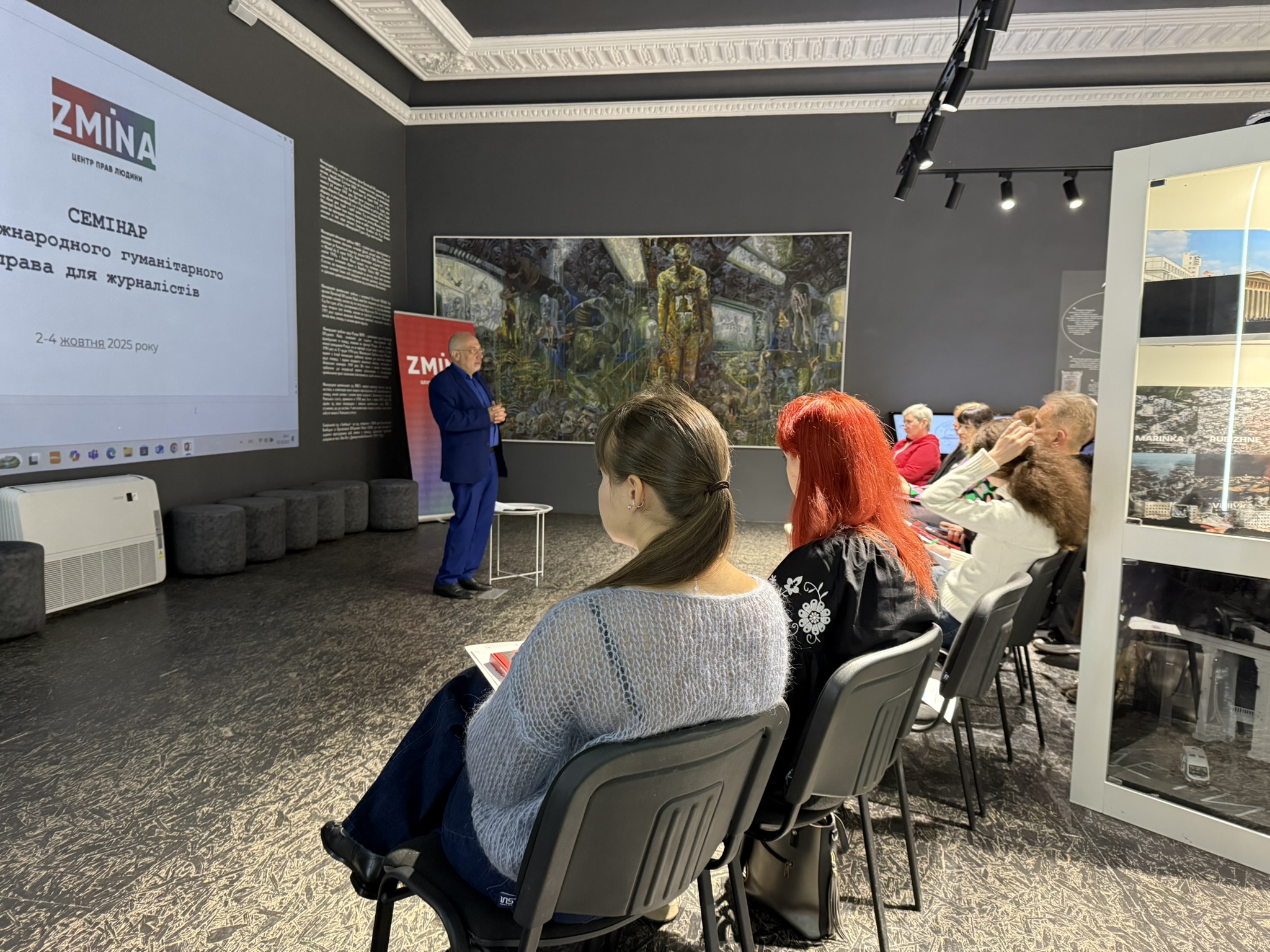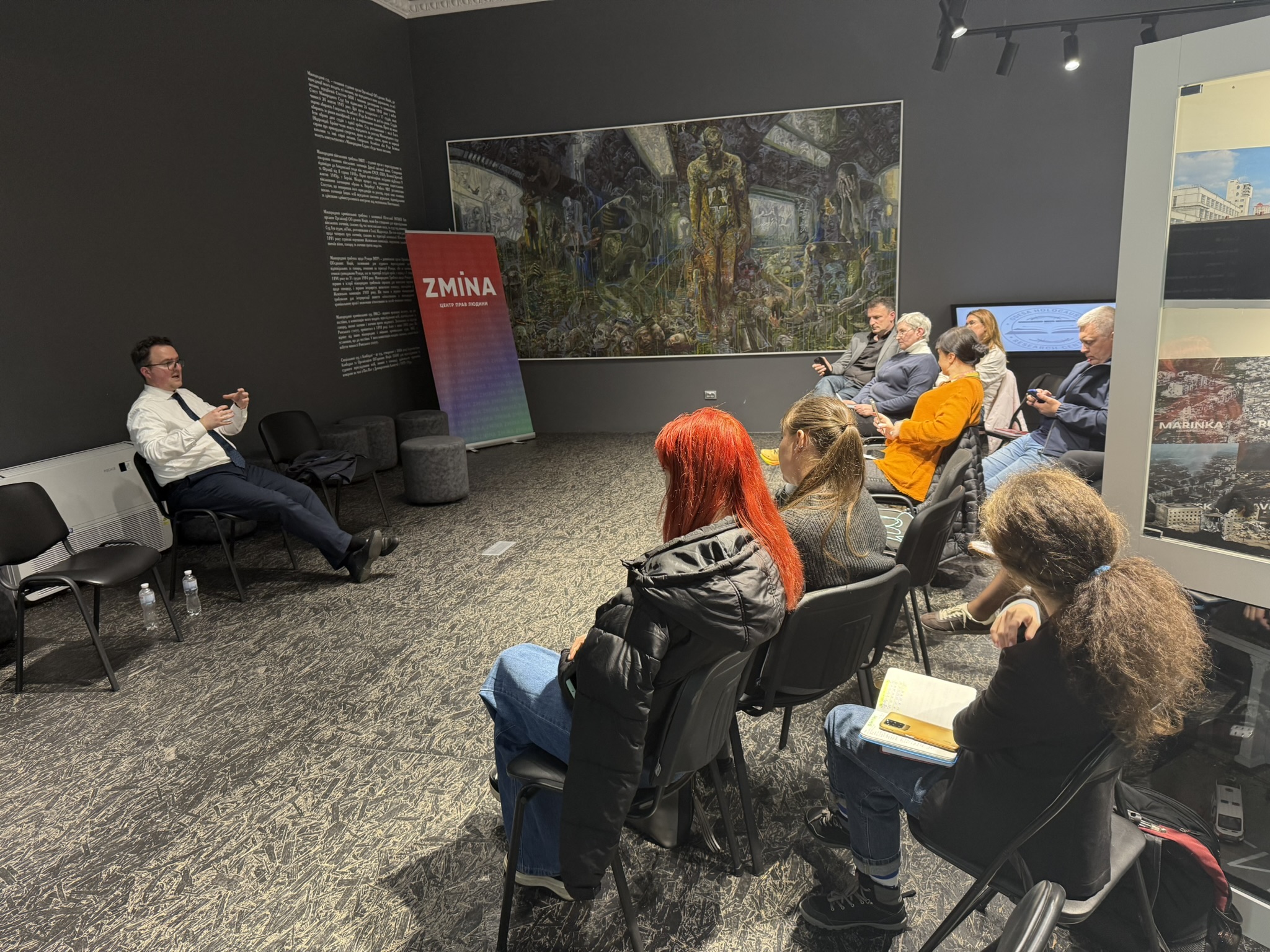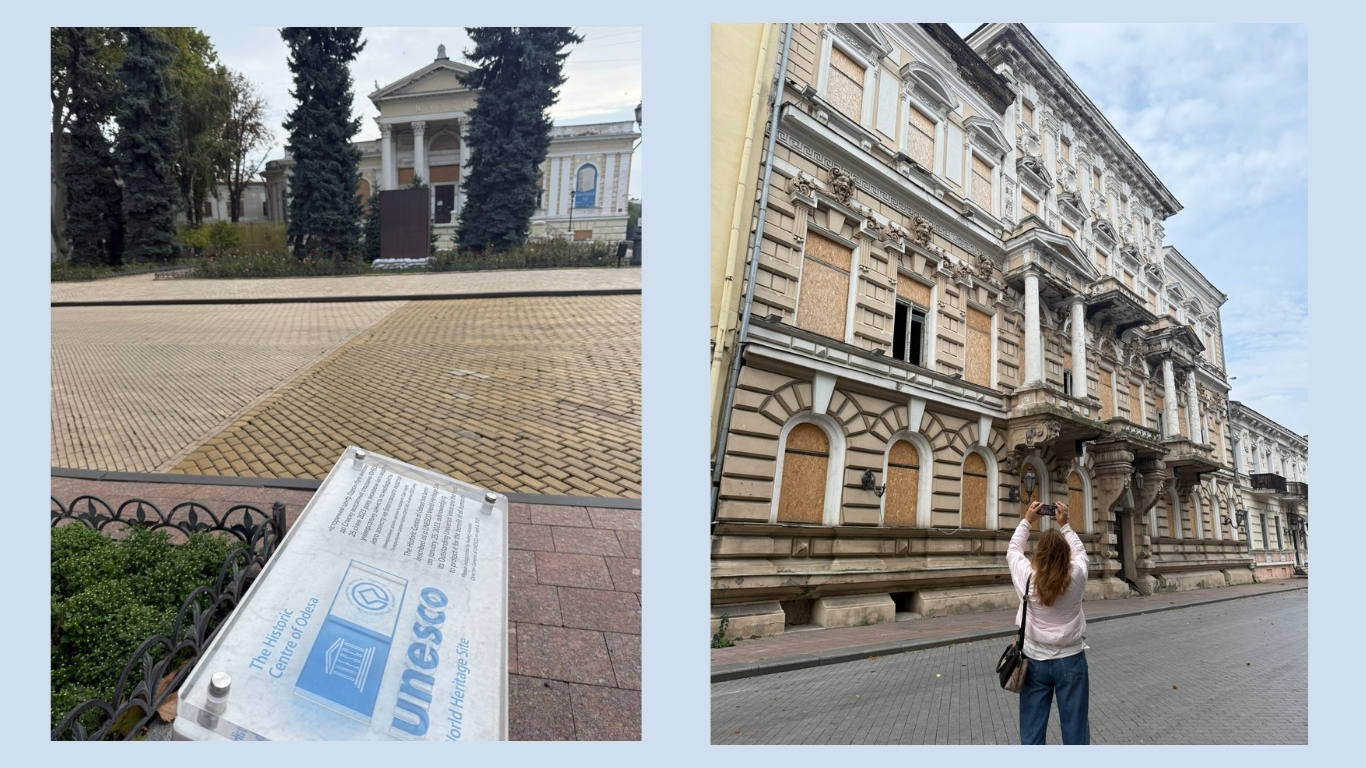ZMINA held a training in Odesa on international humanitarian law for journalists
From 2 to 4 October, ZMINA held a seminar for journalists in Odesa dedicated to covering topics related to international humanitarian law (IHL) during the war. The event took place at the Genocide Museum “Territory of Remembrance” — a space that serves as a reminder of the crimes committed by totalitarian regimes against various peoples and, at the same time, provides an opportunity to discuss Russia’s current crimes against Ukraine.

Participants discussed how to accurately and appropriately cover topics related to international humanitarian law, the status of prisoners of war, war victims, and the specifics of bringing perpetrators of war crimes to justice.
“For twelve years, Ukraine has been suffering from Russian armed aggression, including its full-scale phase since February 2022, and one-fifth of our country’s territory has been occupied. This war is accompanied by a large number of casualties, destruction, and grave violations of international humanitarian law committed by Russia. During the seminar, we examined what responsibility arises for these actions, who will be tried, where and how, as well as the current stage of these processes. Journalists were able to receive answers to their questions first-hand — from those who stand at the origins of these processes,” said Tetiana Pechonchyk, Head of the Board of the Human Rights Centre ZMINA.
During the training, the handbook for journalists, “100 Difficult Questions on International Humanitarian Law and Simple Answers“, was presented. The publication helps media representatives to navigate the rules of IHL better and use terms related to the war correctly.
The handbook was presented by Tymur Korotkyi, Vice-President of the Ukrainian Association of International Law (UAIL) and Advisor to the President of the Ukrainian Red Cross Society, and Iryna Nazarchuk, an international affairs journalist.

After the presentation, the trainers conducted a series of practical exercises. Tymur Korotkyi and Arkadii Dabahian, Head of the Centre for International Humanitarian Law and instructor in international humanitarian law for the Armed Forces of Ukraine, presented the main categories of IHL, explained the principles of its application and the reasons why these rules are often violated in modern armed conflicts.
Mykola Pashkovskyi, an employee of the Аcademician Stashis Scientific Research Institute for the Study of Crime Problems at the National Academy of Legal Sciences of Ukraine, devoted his sessions to the topics of responsibility for violations of international humanitarian law and individual criminal responsibility for international crimes, in particular aggression, war crimes, crimes against humanity, and genocide.
Nataliia Khendel, an expert at the Fund for the Support of Fundamental Research, spoke about information resources that can help journalists in their work.
A separate lecture was given by Anton Korynevych, Director of the Department of International Law at the Ministry of Foreign Affairs of Ukraine, who spoke about the mechanisms for bringing Russian Federation officials to justice for international crimes, in particular the Special Tribunal for the Crime of Aggression against Ukraine.

Volodymyr Lysyk, Associate Professor of the Department of International Law of Ivan Franko National University of Lviv, also spoke, explaining how international law protects victims of war and operates during occupation.
As part of the training, participants visited the Territory of Remembrance Genocide Museum and took a tour of Odessa’s cultural monuments that were damaged by Russian shelling. They saw destroyed architectural monuments in the city centre, which has been under UNESCO protection as a world cultural heritage site since 2023. Even this status did not stop Russia — the strikes on the historic part of Odessa became yet another evidence of the aggressor state’s war crimes.

Journalists had the opportunity to see the consequences of these attacks with their own eyes and discuss how to report on the crimes of the Russian Federation more professionally, in accordance with international humanitarian law standards.
As a reminder, in July 2025, the Human Rights Centre ZMINA, with the support of Freedom House in Ukraine, prepared an updated, second edition of the handbook for journalists “100 Difficult Questions on International Humanitarian Law and Simple Answers“. The handbook is designed as a practical tool for media representatives covering the armed conflict caused by Russia’s aggression against Ukraine. The handbook can be downloaded here.
If you have found a spelling error, please, notify us by selecting that text and pressing Ctrl+Enter.















